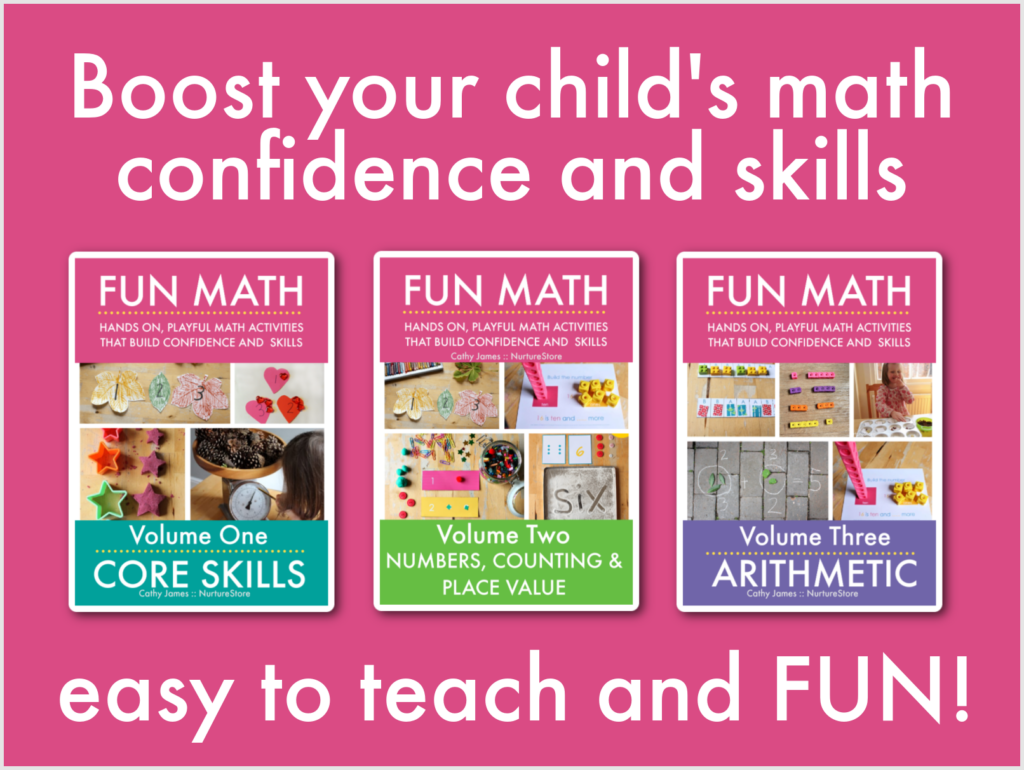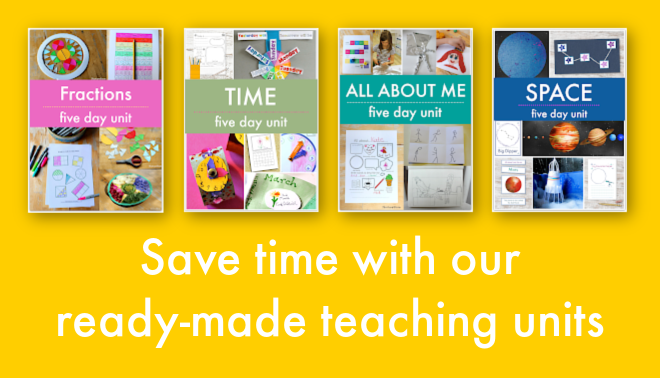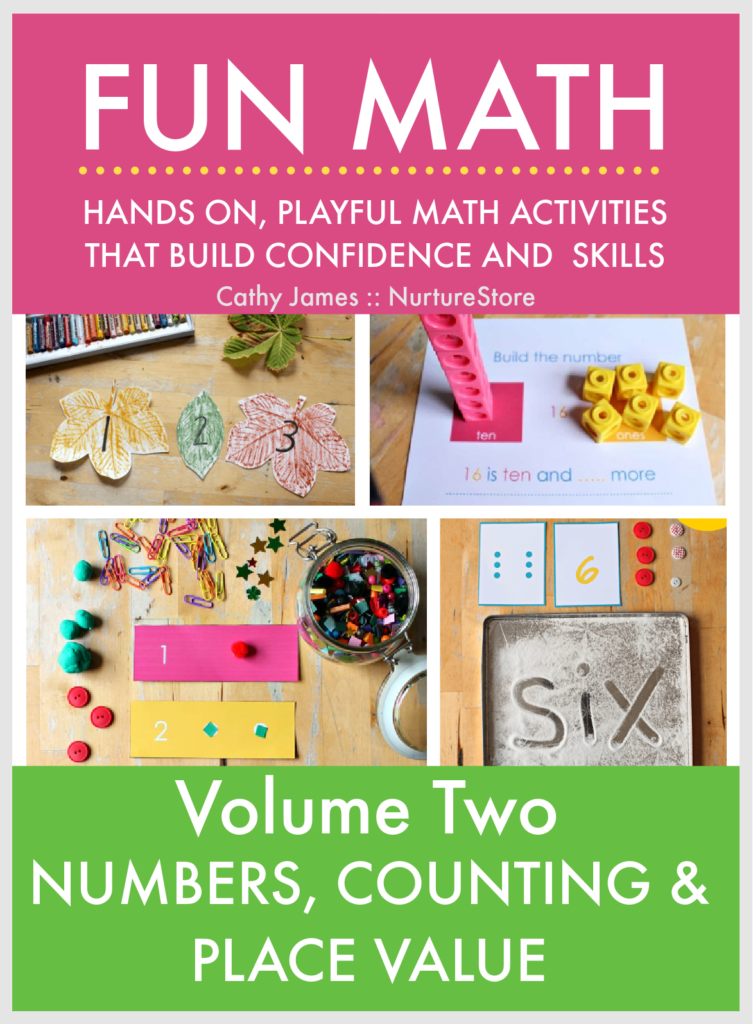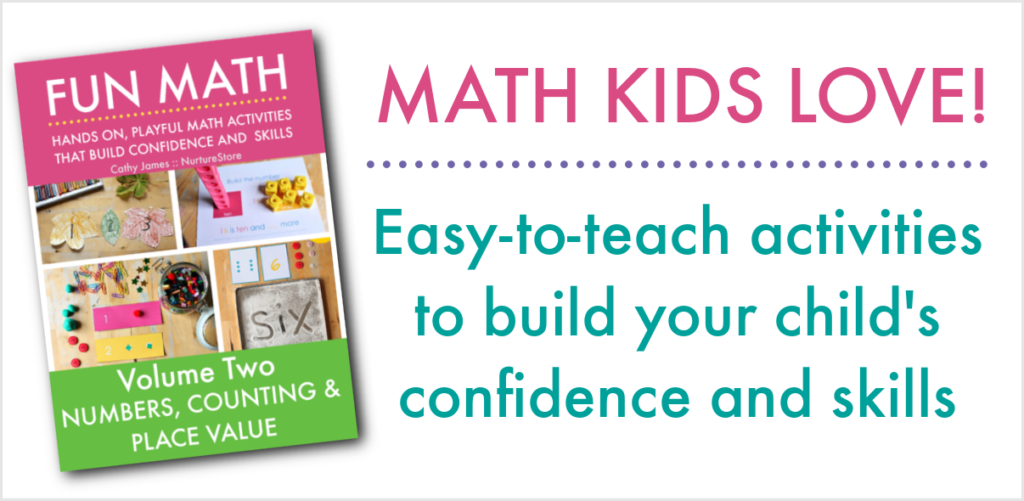These four simple changes could significantly improve your child’s math skills. Try them!
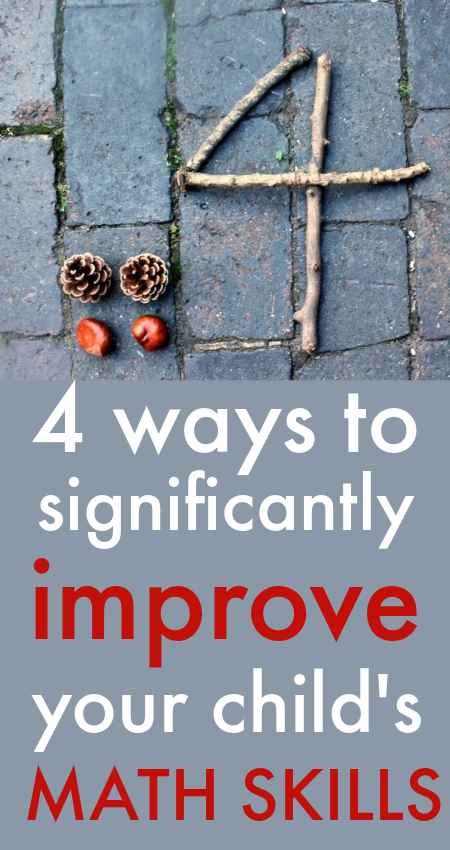
Setting the tone for successful math learning
The success of our math lessons is very much affected by the atmosphere in our classroom, whether that’s at home or in school.
The best learning happens when our children are relaxed, having fun and feeling engaged with the subject, and working at a level that consolidates their existing skills while also challenging them just enough to develop into the next level of complexity or expertise.
So how do we set the tone so our children approach math with the same ease and confidence as they approach telling a story, doing a jigsaw, and playing a new computer game?
Here are four key things we can do to set the tone for relaxed and successful learning:
Magic Fun Math lessons!
Fun Math is an easy to teach, highly effective math curriculum based on play and hands-on learning.
All the lessons are designed to be fun and memorable, so children enjoy their lessons and feel confident.
The lessons are easy for teachers and parents to use, in class or at home.
These are the magic lessons where children really see, understand, and can apply math concepts. They are especially suited to children who don’t like math, lack confidence, don’t understand math the way they are currently being taught, or just want to play.
SEE MORE AND TRANSFORM YOUR MATH TEACHING HERE.
Learning through play
The number one idea, underpinning all NurtureStore’s Fun Math programme is to learn through play.
We make our lessons fun and hands-on. All math concepts are interesting new things to learn about, and all the Fun Math activities will show you how you can introduce each new topic and keep developing your children’s skills through playful, active lessons.
We’ll learn to count by playing with cars, introduce division at snack time, learn about fractions by role-playing a pizza parlour, practice sequencing with pancakes, and begin to understand positions and bearings with small world play.
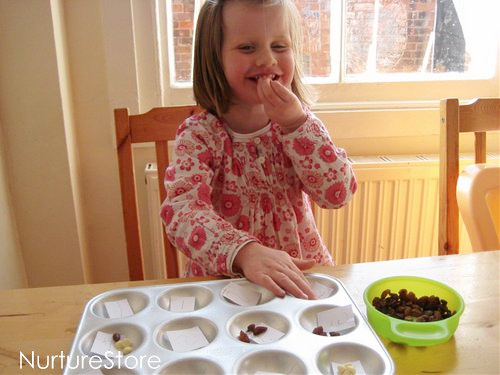
Go at their pace
Secondly, we need to remember to go at their pace.
Our Fun Math curriculum is founded on child-centred learning, where we fit the curriculum to our children, rather than try and squash our children into a rigid, adult-planned programme.
I was once told by a teacher that she had to deliver the national curriculum math teaching to a strict weekly timetable, even though she knew the children hadn’t mastered one concept before they were being moved on to the next. It left the children missing vital steps in their knowledge and always feeling left behind. Let’s not do this!
You can select any of our Fun Math activities to use with your children at any time, based on what stage they are at and use them as often as needed.
Our Fun Math lesson plans can be used to introduce new concepts, practise and consolidate learning, re-cap and revise, and repeat as a refresher when you are moving on to something more advanced.
And the Fun Math curriculum can be the focus of a guided lesson and also available as continuous provision in your classroom. As our activities are hands-on and play-based, children love the play and so want to engage with the activity, time and time again.
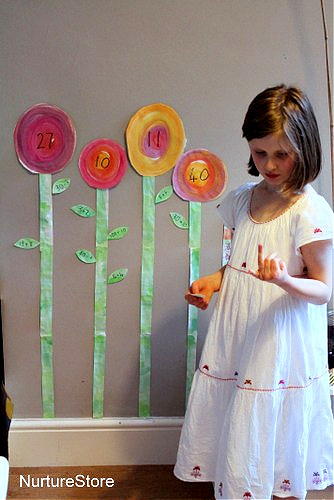
In a similar way, allow your children to use aids for as long as needed.
Let them count on their fingers, use counters and refer to number lines whenever they want to. Even if they’re having a low confidence day and want to go back to working with some aid they gave up a while ago, that’s alright. They’ll know when they are ready to move to mental math and will do so naturally. (And some aides will come back into use again as the math gets more complex, such as the use of number lines as children progress into calculations using negative numbers.)
Just as no-one forces you to put away a recipe book when you’re cooking, don’t force your children to give up visual aids or sit on their hands.
I still use my hands to work out my nine times tables. This helps me rather than hinders me. It’s not cheating!
And don’t rush your children to answer questions, such as in a timed times tables test.
In real life we don’t need to answer arithmetic questions in a split second. Yes, being able to recall arithmetic and number bonds quickly is a skill to develop and will be needed in later math when calculations get more advanced, but let your children get to grips with the skills at first, without a time pressure.
They’ll speed up as their skills grow. There’s no benefit in adding stress – let’s keep the math lessons relaxed.
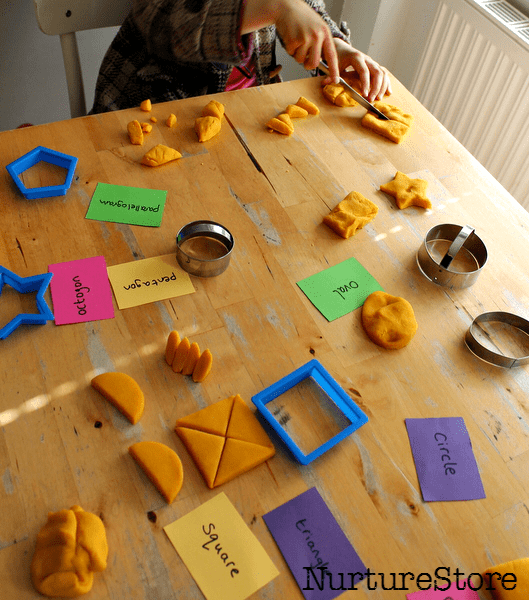
Harness the power of ‘yet’
Rule number three is to harness the power of ‘yet’.
Children should know, through what we tell and show them, that they’re not expected to know things they haven’t yet studied.
We should model for them how to have a growth mindset which means believing we all have the ability to develop our skills and grow our brain. We can learn anything by thinking of different ways to do things, practising, and not giving up.
One way to do this is to use the word ‘yet’ when we’re teaching. “I haven’t worked out how to count to 100 yet… I can’t add fractions yet… but I’m working on it and getting better and better with practice.”
The power of ‘yet’ helps us raise children who feel confident to stretch themselves, and therefore paves the way for them to gain new skills and become more successful.
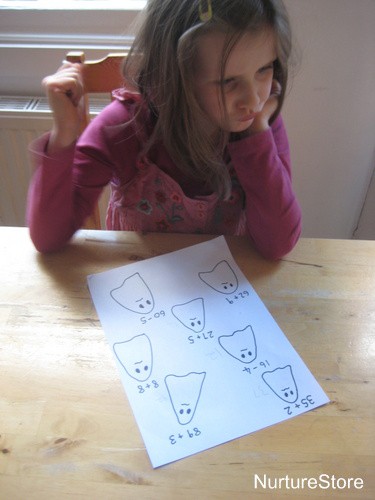
Everyone makes mistakes
And finally, we want to be sure our children know that everyone makes mistakes.
If you’re always getting everything right, are you developing your skills or standing still? Mistakes are how we learn.
If we stay in our comfort zone, afraid of mistakes, we keep ourselves stuck, not learning as much as we could. Mistakes need to be welcomed – they mean we’re moving out of our comfort zone, trying something new, and practicing until we get it right.
Instead of comparing children with each other and seeing who got ‘top marks’ or the highest grade, talk about who’s trying something new, who’s making mistakes because they’re learning. Make a point to ask your children “Who made a mistake today? What did you learn?” and create a class environment that’s totally based on celebrating the process of learning.
And show your children when you make mistakes. Tell the about something you’re learning. Try a brand new activity from our Fun Math lesson plans together, and enjoy the whole process: mistakes, failures and successes.
Transform your teaching with Fun Math
The Fun Math series gives you a math curriculum that is easy to teach and highly effective.
Children love these lessons because they are engaging and fun.
You’ll have a clear set of ready-made math lessons and activities that are simple to lead using our step-by-step lesson guides, and which children really understand.
Be the best math teacher and boost your children’s confidence and skills with Fun Math.
See more and transform your teaching here.


